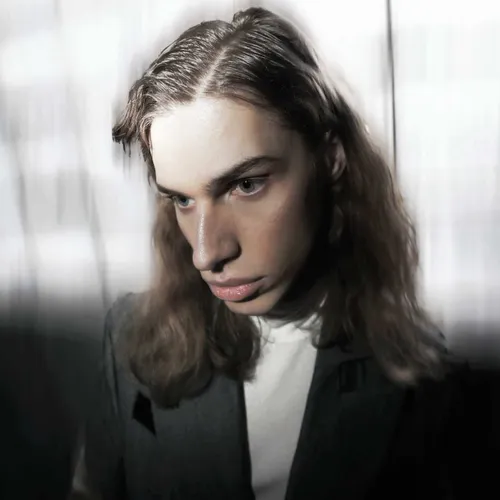
Gregor Kulla is a composer, performance artist, writer, and critic born in Põlva, Estonia. They majored in composition at the Estonian Academy of Music and Theater (with Helena Tulve and Tõnu Kõrvits, cum laude), and in oboe and composition at the Heino Eller Music School (with Anna Šulitšenko and Katrin Aller, with honours). They studied sustainable art creation at the EU School of Participation 2021 in Novi Sad, Serbia, and at the moment they are studying at University of Music and Performing Arts, Vienna.
Their work deals with gender studies, feminism, minority and queer cultures, drag culture and Eastern philosophies. Often their music is seen and heard as something seemingly unchanging, which preserves itself only through constant change. Kulla’s piano quintet brook (2023) has been described by a British critic Simon Cummings as follows: “Nothing was still: little taps, trills and tremolos, with occasional plunks that in this rarified context sounded almost like great boulders falling from the sky, in the process begging the question of how fragile this world actually was. […] At no point did Kulla break the spell, from start to end we are immersed in pure magic.” They have written for solo instruments, ensembles, orchestras, film, performances and other stage works.
Kulla received the honorary title of city Tartu (Tartu Noor Kultuurikandja) in 2020 and, in 2021, became a laureate of Estonian main cultural newspaper Sirp. They are a recipient of the annual prize of the literary magazine Värske Rõhk, the Esimese Sammu literary award, Erkki-Sven Tüür Foundation scholarship and in 2024 they received one of Estonian main literary prize, the Betti Alver literary prize with their debut book Peenar (2024, Värske Raamat), which is described as a book that pushes boundaries. “This is a distinctive, dodecaphonic-like text corpus, written in a stream-of-consciousness style yet lightly curated—retaining its juicy richness while maintaining internal logic and coherence.” In 2024, Kulla also released a vinyl soundtrack for Kris Lemsalu & Johanna Ulfsak’s art mockumentary Old Piano (MIDA Records). In 2025 they received third place in the International Rostrum of Composers in the category of composers under 30 years of age. They have served as creative producer and assistant artistic director for the international contemporary music festival Afekt since 2021, and host the radio show (new) music w/ kulla on IDA Radio.
साँवरौ मनमोहन माई
saamvarau manmohan maai
L'envoûteur de l'esprit a la couleur du crépuscule
Le titre de l'œuvre provient du « poète aveugle » dévotionnel hindou du XVIe siècle Surdas (sanskrit : सूरदास, romanisé : Sūradāsa), où il fait référence à un perroquet, le perroquet étant lui-même, mais en mentionnant l'oiseau, l'auteur fait également référence au troisième verset du Bhagavata Purana, un texte de base de la culture hindoue, où il est dit que les récits de l'œuvre ont été rendus plus savoureux par la touche de l'orateur, Shukadeva (littéralement « perroquet divin »). Il s'agit de la conviction culturelle indienne selon laquelle ce qui est consciemment partagé augmente sa « saveur », sa profondeur de sens et sa valeur. La poésie de Suradasa peut être lue en estonien dans la traduction de Mathura (Elada, et Olla ookean, Allikaäärne 2018). Je remercie Mathura pour son aide dans la traduction en hindi et en anglais des textes de Surdas.
Le contenu de la pièce est un extrait de État de siège (2002) du poète et écrivain palestinien Mahmoud Darwish. L'œuvre a été écrite alors que le poète était assiégé à Ramallah lors de l'invasion israélienne de 2002.
Si tu n'es pas une pluie mon amour
sois un arbre
saturé de fertilité... sois un arbre
et si tu n'es pas un arbre mon amour
sois une pierre
saturée d'humidité... sois une pierre
et si tu n'es pas une pierre mon amour
sois une lune
dans le rêve de l'être aimé... sois une lune
On entendra la chanson Iseendale (« To Yourself » - 2006) de l'idole de la pop estonienne Ines avant la fin, comme si elle était chantée sous la douche.